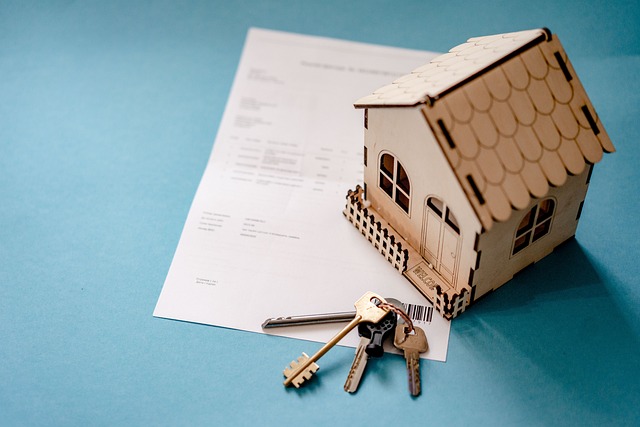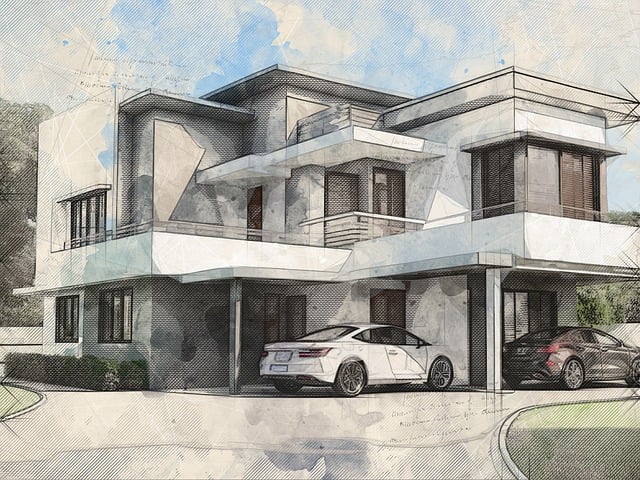2022 was a landmark year for those looking to purchase an Executive Condominium (EC) in Singapore, with key regulations and financial guidelines set by the Housing & Development Board (HDB), the CPF Board, and the Residential Property Act. To be eligible for an EC, at least one applicant must be a Singapore citizen. The Fixed Income Ceiling ensures that buyers' monthly mortgage payments remain manageable, and housing subsidies like the Public-Private Housing Grant (PPHG) provide financial assistance to lower-income households. For second-time EC buyers, the Resale Levy (RL) is a critical consideration, as it prevents individuals from repeatedly benefiting from subsidies meant for first-time buyers. The RL amount is based on the average price of a resale flat in the Core Central Region and must be factored into the financial planning process. Understanding these regulations and their implications on affordability, eligibility, and long-term financial commitment is essential for anyone considering an Executive Condo Singapore 2022 as a housing option.
2022 marks a pivotal year for Singaporeans considering an Executive Condominium (EC) as their home. This comprehensive guide delves into the eligibility requirements and intricacies of EC living, tailored for the current year’s regulations. From understanding what an EC is to navigating the five-year Minimum Occupation Period (MOP), this article provides a clear framework for prospective homeowners. We explore the criteria for EC application, the impact of citizenship rules on eligibility, income ceilings affecting affordability, and the implications of the resale levy for second-time buyers. Whether you’re new to the property market or an experienced buyer, this guide ensures you’re well-informed about the Executive Condo scene in Singapore 2022.
- Understanding Executive Condominiums (ECs) in Singapore: A 2022 Guide for Singaporeans
- Eligibility Criteria for Applying for an EC in Singapore
- Who Qualifies to Buy an Executive Condo in Singapore in 2022?
- The Five-Year MOP and Its Implications for EC Owners in Singapore
- Citizenship Rules and Their Impact on EC Eligibility for Singaporeans
- Income Ceilings and Affordable Housing Schemes for ECs in Singapore
- Resale Levy Considerations for Second-Time EC Buyers in 2022
Understanding Executive Condominiums (ECs) in Singapore: A 2022 Guide for Singaporeans

2022 marks a significant year for Singaporeans seeking to own their first home, with Executive Condominiums (ECs) continuing to serve as an attractive housing option that blends the benefits of both public and private housing. ECs are hybrid housing designed for Singaporeans who aspire to upgrade from Housing & Development Board (HDB) flats to larger and more luxurious living spaces without the full price tag attached to private condominiums. In 2022, eligibility criteria for purchasing an EC remain consistent with previous years: applicants must be Singapore citizens, their monthly household income should not exceed S$14,000, and they must already own or have applied to purchase a resale HDB flat. Furthermore, individuals and families are only eligible to apply for an EC loan from financial institutions if they have not previously taken housing loans for private residential property within the past 30 months. This guide aims to demystify the process for first-time applicants, highlighting key points about Executive Condominiums in Singapore for the year 2022, such as the eligibility requirements, application processes, and the benefits of living in an EC. Prospective buyers should refer to the latest information from the Singaporean government’s housing and development board or the CPF Board for the most up-to-date guidelines and stipulations regarding ECs.
Eligibility Criteria for Applying for an EC in Singapore

Singaporeans interested in owning an Executive Condominium (EC) in 2022 must meet specific eligibility criteria set forth by the Singapore government. These residency requirements are designed to cater to the needs of both young families and upgrading couples who aspire to enjoy condo living without the full restrictions of HDB flats. To apply for an EC, applicants must be either Singapore Citizens or Permanent Residents, and they should not own another flat at the time of application. Additionally, applicants must fulfill the ‘total household income’ criterion; this income cannot exceed SGD14,000 for those applying under the Fixed Rate Scheme, or SGD16,000 for the Market Rate Scheme. Furthermore, applicants must be at least 21 years old and intending to get married or already married. Joint applications can be made with an unmarried child of up to 35 years old, provided they are financially dependent on the applicant or spouse. The eligibility period for EC application is two years from the date of marriage, and once successful, the waiting time before one can sell the unit on the open market is three years, as opposed to five years for a public housing flat. These conditions ensure that the EC scheme remains accessible and fair to Singaporeans at different stages of life, reflecting the dynamic nature of Executive Condos Singapore 2022 in the property landscape.
Who Qualifies to Buy an Executive Condo in Singapore in 2022?

In 2022, the eligibility criteria for purchasing an Executive Condominium (EC) in Singapore are designed to cater to both singles and families looking for a flexible and affordable housing option. Singaporeans who are at least 21 years old and have the necessary financial requirements can apply for an EC. These individuals or families must also meet the Additional Housing Grant (AHG) criteria if they are purchasing a newer EC, which provides further assistance to lower-income and first-time homeowners. Couples applying for an EC must be married or in a long-firm relationship with at least two years of cohabitation, and at least one applicant must be a Singapore citizen. Furthermore, applicants must not own another flat, except for a HDB flat that they are living in or have disposed of, or have withdrawn their CPF (Central Provident Fund) monies to purchase an EC. This ownership restriction applies within 30 months before the application for a new EC loan.
To qualify for an EC, applicants must also intend to occupy the unit for at least five years before they are eligible to sell it on the open market. After satisfying this occupation period, the EC can be sold to Singapore citizens or permanent residents, or converted to a private condominium after fulfilling certain criteria, which includes living in the unit for a stipulated period and applying to HDB for the change in use. These guidelines ensure that ECs are accessible primarily to owner-occupiers while offering the flexibility to transition into a private property later on. Prospective buyers should refer to the Housing & Development Board (HDB) or the CPF Board’s latest regulations for specific details and updates, as eligibility requirements may change over time.
The Five-Year MOP and Its Implications for EC Owners in Singapore

2022 marks a significant year for Singaporeans considering the purchase of an Executive Condominium (EC) as their home. The Ministry of National Development outlines a pivotal requirement for EC ownership, known as the Minimum Occupation Period (MOP). This regulation stipulates that after purchasing an EC, Singaporean families must occupy the unit for at least five years before they can sell it on the open market. This MOP is crucial for fostering stable and long-term living arrangements within these developments, which are designed to offer a transitional housing option between public and private housing.
For those who comply with this MOP, the implications are multifaceted. On one hand, adhering to the MOP ensures that ECs remain accessible to first-time homeowners who fall within the middle-income group. On the other hand, should owners meet the five-year tenure requirement and decide to sell their unit, they can then upgrade to a private residential property or opt for a larger HDB flat, thereby facilitating societal mobility. The 2022 Executive Condo Singapore landscape continues to evolve with these considerations in mind, offering prospective homeowners a range of options that cater to various life stages and financial situations. Prospective buyers are encouraged to keep abreast of the latest EC schemes and requirements to make informed decisions about their housing options within this dynamic market.
Citizenship Rules and Their Impact on EC Eligibility for Singaporeans

Singaporeans considering the purchase of an Executive Condominium (EC) in 2022 must first understand the citizenship rules that influence their eligibility to own such a property. Under the Housing and Development Board (HDB), Singaporeans have more flexible options when it comes to ECs compared to public housing flats, which are typically reserved for citizens only. An EC is a hybrid of a public and a private condominium, designed to offer affordable living for younger couples. As of 2022, the eligibility criteria stipulate that at least one applicant must be a Singaporean citizen, while the other can be a permanent resident, a single person, or another Singaporean. This rule is critical as it determines the primary eligibility for the purchase and ensures that the majority of units in an EC are accessible to citizens who form the majority of the population.
Furthermore, the impact of these citizenship rules extends beyond individual eligibility; it shapes the demographic profile of neighborhoods where ECs are situated. The mix of citizen and non-citizen ownership influences the types of facilities and services that developers prioritize, ensuring a balance that caters to the needs of Singaporean families while allowing for a diverse community. For instance, the proximity of childcare centers, schools, and recreational facilities is often a consideration in areas with a higher density of ECs inhabited by citizens. Prospective buyers should thus be well-versed with these rules before committing to an EC in Singapore, as they not only affect individual rights but also the communal living landscape in the years to come. The Executive Condo Singapore 2022 offers a stepping stone for upgrading from public housing, and understanding these citizenship rules is paramount for anyone looking to make the most of this opportunity.
Income Ceilings and Affordable Housing Schemes for ECs in Singapore

For Singaporeans aspiring to own an Executive Condominium (EC) in 2022, understanding the income ceilings and the associated affordable housing schemes is crucial for eligibility. The Housing & Development Board (HDB) has set out guidelines where applicants must not exceed the Fixed Income Ceiling, which is periodically updated to reflect economic conditions. As of the latest update, this ceiling is designed to ensure that only those with a comfortable financial standing can afford an EC without undue financial strain. The ceiling serves as a threshold to prevent over-commitment, ensuring that buyers are able to service their monthly mortgage payments comfortably.
Furthermore, Singaporeans considering an EC should be aware of the various housing schemes available to them, such as the Public-Private Housing Grant (PPHG). This grant is specifically tailored for those purchasing an EC and assists with reducing the price of the unit. The amount of assistance is determined by the household income, with higher grants offered to lower-income applicants. Prospective buyers must meet the eligibility criteria, which includes the income ceiling, to qualify for these subsidies. It’s important for potential EC owners to refer to the latest guidelines provided by the CPG (Central Provident Fund Board of Trustees) and HDB to ensure they meet all the requirements before embarking on this housing journey. Executive Condo Singapore 2022 remains an attractive and viable option for those looking to upgrade from HDB flats, with these eligibility benchmarks in place to support sustainable home ownership.
Resale Levy Considerations for Second-Time EC Buyers in 2022

In 2022, second-time buyers of Executive Condos (ECs) in Singapore need to be mindful of the Resale Levy (RL). Introduced by the CPF Board, this levy is applicable to those purchasing a second EC, either from the open market or through the resale market, after having sold or disposed of their first EC. The RL serves as a measure to prevent abuse of the EC scheme, which is designed to provide affordable housing options for couples and families. For buyers who have previously owned an EC, the RL aims to ensure fairness within the property market and prevents individuals from repeatedly benefiting from the subsidies intended for first-time EC buyers. It’s important for potential buyers to consider this levy when planning their property investment journey in 2022, as it will affect their financial commitments. The RL amount is determined based on the average price of a five-room flat in non-landed resale flats within the CCR (Core Central Region) as announced by the Singapore Government at the time of purchase. Prospective EC buyers should stay informed about the current RL rates and factors these into their financial planning when considering an Executive Condo Singapore 2022 purchase for a second home. Understanding the implications of the Resale Levy is crucial for second-time EC buyers to ensure they are fully prepared for the associated costs and can navigate the property market with clarity and confidence.
2022 has seen a continued interest in Executive Condominiums (ECs) as a housing option for Singaporeans, offering a balance between public and private housing. Prospective buyers should thoroughly understand the eligibility requirements for purchasing an EC, which include criteria around citizenship, income ceilings, and the mandatory five-year Minimum Occupation Period post-purchase. These guidelines are in place to ensure that ECs remain accessible and affordable within the framework of Singapore’s diverse housing landscape. With careful consideration of the resale levy for second-time buyers, Singaporeans can navigate the EC market confidently. For the most current and comprehensive information on EC eligibility in 2022, refer to the latest guidelines provided by the relevant authorities in Singapore. Understanding these requirements is crucial for a smooth homeownership journey within this unique segment of the property market.
